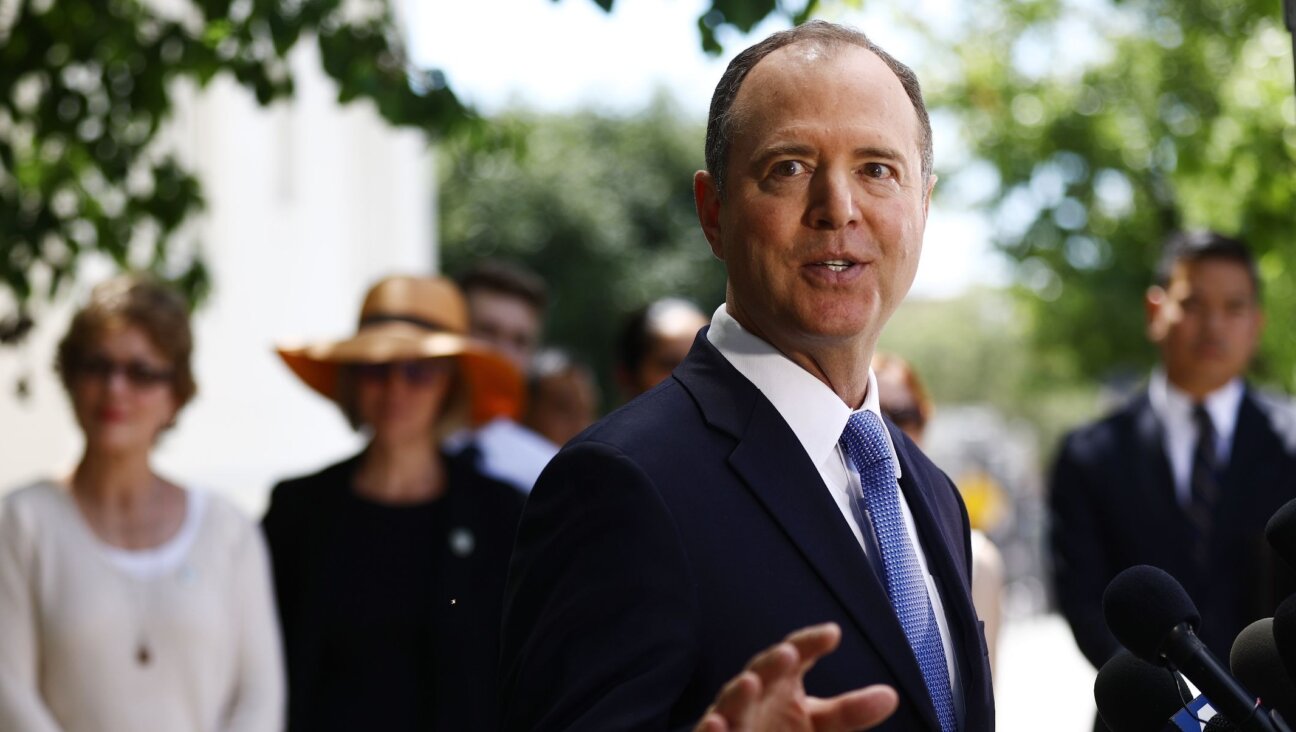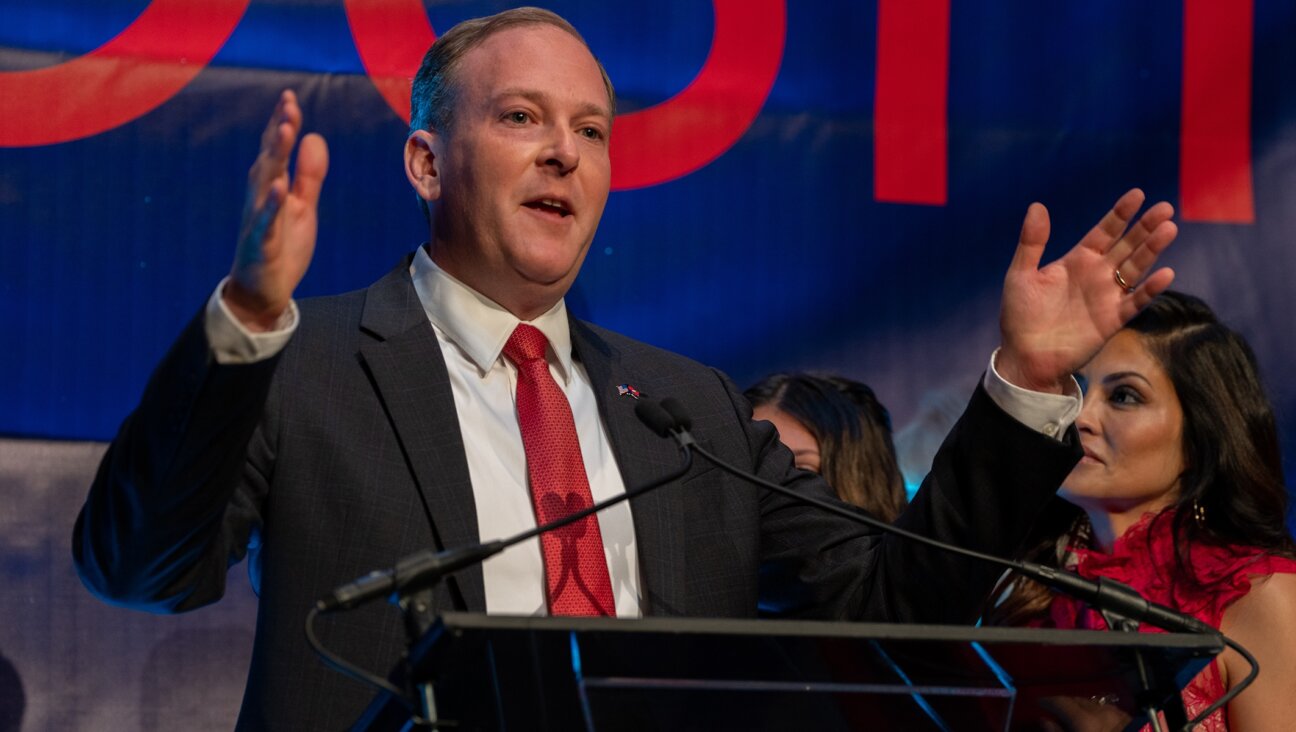Spitzer’s Office: We Found ‘Significant’ Problems At Young Israel
The office of New York Attorney General Eliot Spitzer was riven by an investigation of an Orthodox synagogue organization, but the one thing all members of the attorney general’s office agree on is that the office found “significant” problems at the synagogue organization that have not previously been disclosed publicly.
Spitzer’s office began looking at the organization, the National Council of Young Israel, in 1999, when the council made a routine application to the attorney general for a new mortgage. The mortgage was for a nursing home operated by the National Council in a suburb of New York City. The inquiry, routine in the case of a refinancing application by a non-profit, soon uncovered a $6.5 million liability that the nursing home had to the New York department of health.
The investigation was passed to the attorney general’s Medicaid Fraud Control Unit, which, prior to 2002, identified some $215,000 in illegal loans made to the organization’s former president, Chaim Kaminetsky, who was also the administrator of the nursing home. Those loans, which contravened state charity law according to the attorney general’s office, were paid back, some before the investigation and some afterward. In addition to the loans, the Medicaid Fraud Control Unit identified close to $5,000 in payments on behalf of Kaminetsky’s relatives.
The attorney general’s office also identified $130,000 in payments that went to the National Council’s executive vice president, Pesach Lerner, and were not backed up with contemporaneous documentation. The National Council provided explanations to the attorney general’s office for many of these payments, including $50,000 that was described as a loan to Lerner, and $25,000 described as an adjustment for sick days, according to the attorney general’s office. In the end, $20,000 was not accounted for and the attorney general’s office decided to hand the case over to state and federal tax authorities.
Spitzer also said that the National Council had governance problems that his office worked to correct.
A lawyer for the National Council declined to respond to specific allegations. In declining to respond, the attorney cited an earlier article written by the Forward that contained a factual error, corrected a week later, about the sale of the National Council’s headquarters building in Manhattan.
“We are surprised by your new convoluted inquiries which appear to have been suggested by those with various axes to grind,” wrote Kenneth Fisher, a lawyer for the National Council.
“We are proud of the work done by our professional staff, rabbis, lay board and volunteers, including the planned sales of some of our real estate interests which were approved by Attorney General Spitzer’s office after extensive review of our operations and procedures, and which will enable us to continue our services to our more than 150 member congregations for many years to come.”
Multiple messages left at Chaim Kaminetsky’s home and office, seeking comment, were not returned. Kaminetsky left the National Council and works today as the president of the Highland Care Center, a nursing home in Jamaica, N.Y.
Only one element of the attorney general’s investigations of the National Council has previously been made public. In 2002, the National Council needed the attorney general’s approval when it decided to sell its Manhattan headquarters, which also housed a member synagogue, the Young Israel of Fifth Avenue. The synagogue sued to block the sale. Some members of the attorney general’s office were also opposed to allowing the sale.
The dispute was settled in August 2005, when a member of the Young Israel of Fifth Avenue agreed to buy the building and allow the synagogue to remain. As a condition for the attorney general’s approval of the sale, the National Council agreed in court documents to use $4 million from the proceeds to set up a trust that cannot be dissolved until the nursing home Medicaid liability is repaid to the state.
The liability had been accrued after the nursing home was granted not-for-profit tax status in the 1980s. Medicaid payments are calculated, in part, based on tax payments, and as a result the exemption should have lowered the nursing home’s reimbursement rate. According to a letter from the National Council’s lawyers, the organization was told in the 1980s that the department of health would lower its reimbursement rate, but the department never did so.
The attorney general’s office says that after the liability was uncovered, the state department of health began recouping the money by withholding a set amount from Medicaid payments to the National Council’s nursing home. To date, the attorney general’s office said that $1.5 million of the liability has been recovered.
Some members of the National Council’s governing bodies have said that even after the attorney general’s involvement with the National Council, governance problems have continued at the organization. A lawsuit regarding the governance of the National Council was filed earlier this year by a member of the National Council’s delegate’s assembly — the organization’s top governing board below the board of directors. The suit, filed by Ira Sturm, whose father is a former executive vice president of the National Council, said the National Council leadership had violated the organization’s constitution by not allowing for proper oversight.
The National Council’s constitution mandates that the delegates assembly meet at least three times a year, approve the budget once a year and elect a president every two years. According to Sturm’s lawsuit, none of these conditions have been fulfilled since the current president took over in 2000. Sturm, who belongs to a Young Israel synagogue in Woodmere, N.Y., withdrew the lawsuit earlier this year and declined to comment on it. But another member of the delegates assembly — from the Young Israel of Fifth Avenue — said that the points Sturm made about the delegates assembly were still true.
“They really should be held to a higher standard,” said Victor Bellino, who was president of the Young Israel of Fifth Avenue from 2000 until earlier this year, and a member of the delegates assembly during that time.
Bellino, whose synagogue will become independent of the National Council under the deal worked out in the sale of the Manhattan property, said, “I’m glad we’re getting away from them.”
A message from our CEO & publisher Rachel Fishman Feddersen

I hope you appreciated this article. Before you go, I’d like to ask you to please support the Forward’s award-winning, nonprofit journalism during this critical time.
We’ve set a goal to raise $260,000 by December 31. That’s an ambitious goal, but one that will give us the resources we need to invest in the high quality news, opinion, analysis and cultural coverage that isn’t available anywhere else.
If you feel inspired to make an impact, now is the time to give something back. Join us as a member at your most generous level.
— Rachel Fishman Feddersen, Publisher and CEO






















